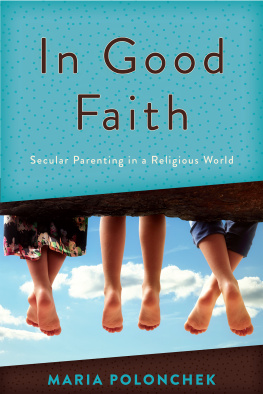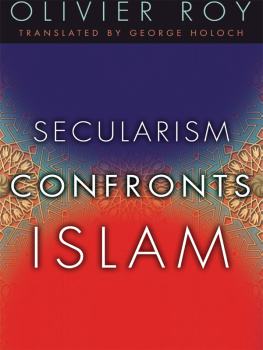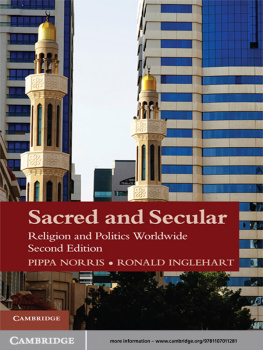Zuckerman - Society without God: what the least religious nations can tell us about contentment
Here you can read online Zuckerman - Society without God: what the least religious nations can tell us about contentment full text of the book (entire story) in english for free. Download pdf and epub, get meaning, cover and reviews about this ebook. City: London;New York, year: 2010;2008, publisher: New York University Press, genre: Religion. Description of the work, (preface) as well as reviews are available. Best literature library LitArk.com created for fans of good reading and offers a wide selection of genres:
Romance novel
Science fiction
Adventure
Detective
Science
History
Home and family
Prose
Art
Politics
Computer
Non-fiction
Religion
Business
Children
Humor
Choose a favorite category and find really read worthwhile books. Enjoy immersion in the world of imagination, feel the emotions of the characters or learn something new for yourself, make an fascinating discovery.

Society without God: what the least religious nations can tell us about contentment: summary, description and annotation
We offer to read an annotation, description, summary or preface (depends on what the author of the book "Society without God: what the least religious nations can tell us about contentment" wrote himself). If you haven't found the necessary information about the book — write in the comments, we will try to find it.
Society without God: what the least religious nations can tell us about contentment — read online for free the complete book (whole text) full work
Below is the text of the book, divided by pages. System saving the place of the last page read, allows you to conveniently read the book "Society without God: what the least religious nations can tell us about contentment" online for free, without having to search again every time where you left off. Put a bookmark, and you can go to the page where you finished reading at any time.
Font size:
Interval:
Bookmark:
Society without God
The research for this book was financially supported in part by Pitzer College and the European Union Center of California, as well as two generous grants: the Jack Shand Research Award from the Society for the Scientific Study of Religion, and the Joseph Fichter Research Award from the Association for the Sociology of Religion. My great appreciation goes out to these institutions and organizations.
I would also like to recognize and sincerely thank the following people for their significant help and support: Azadeh Afsar, Lars Ahlin, Steve Bruce, Andrew Buckser, Theo Calderara, Michelle Cadeau, Alice Elbek, Jrgen Elbek, Lonni Fogsgaard, Gran Gustafsson, Richard Halladay, Sandy Hamilton, Sonja Bossow Jakobsen, Hans Jrgen Lundager Jensen, Karen-Lise Johansen, Jesper Jhne, Lindsay Kennedy, Iben Krogsdal, Lene Khle, Kjell Lejon, Christel Manning, Kirsten Foss Marstal, Amatzya Mezahav, Maja Mller, Elof Nelson, Nilla Norberg, Jens Peter Schjdt, Madeleine Svensson, Carina Tannenberg, Cecilia Thurman, Tage Vester, Lars Villemoes, and the many individuals who agreed to participate in an interview with me.
I would like to further express my deepest gratitude to Stacy Elliott, Jennifer Hammer, Neils Tage Hansen, Hans Raun Iversen, Benton Johnson, Edna Kovanda Klein, and Marvin Zuckerman for their invaluable input, work, and encouragement.
Phil Zuckerman
What the Least Religious Nations
Can Tell Us about Contentment

NEW YORK UNIVERSITY PRESS
New York and London
www.nyupress.org
2008 by New York University
All rights reserved
Library of Congress Cataloging-in-Publication Data
Zuckerman, Phil.
Society without God / Phil Zuckerman.
p. cm.
Includes bibliographical references and index.
ISBN-13: 9780814797143 (cl : alk. paper)
ISBN-10: 0814797148 (cl : alk. paper)
1. ReligionControversial literature. 2. Religion and sociology. I. Title.
BL2775.3.Z83 2008
306.6094dc22 2008018213
New York University Press books are printed on acid-free paper, and their binding materials are chosen for strength and durability. We strive to use environmentally responsible suppliers and materials to the greatest extent possible in publishing our books.
Manufactured in the United States of America
c 10 9 8 7 6 5 4 3 2 1
p 10 9 8 7 6 5 4 3 2 1
THE WORLD SEEMS more religious than ever these days.
Across the Middle East, fervent forms of Islam are growing more popular and more politically active. Muslim nations that were somewhat secularized 40 years agosuch as Lebanon and Iranare now teeming with fundamentalism. In Turkey and Egypt, increasing numbers of women are turning to the veil as an overt manifestation of reinvigorated religious commitment. But it isnt just in the Muslim world that religion is thriving. From Brazil to El Salvador, Protestant Evangelicalism is spreading with great success, instilling a spirited, holy zeal throughout Latin America. Pentecostalism is proliferating, toovigorouslyand not only throughout Latin America, but in Africa and even China. In the Philippines, tens of thousands of people are committing themselves to new religious movements such as El Shaddai, with its powerful theology of prosperity. And many nations of the former Soviet Union, which had atheism imposed upon them for decades, have emerged from the communist era with their faith not only intact, but strong and vibrant. Even in Canada, a nation hardly known for its religious vitality, there is evidence of a spiritual and religious renaissance. To quote a leading sociologist of religion, Peter Berger, most of the world is bubbling with religious passions.
Here in the United States, religion is definitely alive and well. In fact, religion in the United Statesin terms of church attendance and belief in God, Jesus, and the Bibleis stronger and more robust than in most other developed democracies. Simply driving around Southern California, where I live, it seems like every third bumper sticker is an ad for Jesus, God, or the Bible. But Americas religious fervor isnt just to be found on bumper stickers. I was recently in Tucson, Arizona, and was struck by the many prominent billboards all around the city, advocating prayer and worship of the Lord. In addition to the proliferation of religious bumper stickers and billboards, Christianity in America today is being steadily broadcast from radio stations and television channels with unprecedented dynamism. As for the nations politicians, both Republicans and Democrats seem to be more publicly religious than ever, going out of their way to emphasize their faith. And Americans seem to like it that way. After all, nobody seemed to care when, back in 2004, George W. Bush said that his invasion of Iraq was inspired by the result of his prayerful consultations with God. If anything, that admission gained him more credibility among Americans, not less.
In sum, from Nebraska to Nepal, from Georgia to Guatemala, and from Utah to Uganda, humans all over the globe are vigorously praising various deities; regularly attending services at churches, temples, and mosques; persistently studying sacred texts; dutifully performing holy rites; energetically carrying out spiritual rituals; soberly defending the world from sin; piously fasting; and enthusiastically praying and then praying some more, singing, praising, and loving this or that savior, prophet, or god.
But this is not occurring everywhere. In fact, there actually are some notable pockets of irreligion out there.
They may be few and far between, but there are indeed some significant corners of the world today, however atypical, where worship of God and church attendance are minimal. These unusual, exceptional societiesrather than being more religious than everare actually less religious than ever. In fact, they arent very religious at all. I am referring to two nations in particular, Denmark and Sweden, which are probably the least religious countries in the world, and possibly in the history of the world. Amidst all this vibrant global pietyatop the vast swelling sea of sacrednessDenmark and Sweden float along like small, content, durable dinghies of secular life, where most people are nonreligious and dont worship Jesus or Vishnu, dont revere sacred texts, dont pray, and dont give much credence to the essential dogmas of the worlds great faiths.
In clean and green Scandinavia, few people speak of God, few people spend much time thinking about theological matters, and although their media in recent years has done an unusually large amount of reporting on religion, even this is offered as some sort of attempt to grapple with and make sense of this strange foreign phenomenon out there in the wider world that refuses to disappear, a phenomenon that takes on such dire significance for everyoneexcept, well, for Danes and Swedes. If there is an earthly heaven for secular folk, contemporary Denmark and Sweden may very well be it: quaint towns, inviting cities, beautiful forests, lonely beaches, healthy democracies, among the lowest violent crime rates in the world, the lowest levels of corruption in the world, excellent educational systems, innovative architecture, strong economies, well-supported arts, successful entrepreneurship, clean hospitals, delicious beer, free health care, maverick filmmaking, egalitarian social policies, sleek design, comfortable bike pathsand not much faith in God.
I lived in Scandinavia for 14 months, from May 2005 through July 2006. With my tape recorder in hand, along with a notepad and pen, I sat down and spoke with Danes and Swedes of all ages and various educational backgrounds, from folks who had Ph.D.s to many whose formal education never went beyond the seventh or eighth grade. The people I interviewed were from tiny rural villages, medium-sized towns, as well as large cities. And they represented a vast array of different occupations, including cooks, nurses, computer technicians, professors, artists, lawyers, slaughterhouse workers, preschool teachers, heart surgeons, farmers, police officers, journalists, high school teachers, submarine officers, psychiatrists, social workers, graphic designers, stay-at-home moms, grocery store clerks, engineers, shop stewards, small business owners, physical therapists, tax consultants, casting directors, secretaries, postal workers, students, janitors, the unemployed, and even one bass player. It was through these in-depth conversations with so many people from both Denmark and neighboring Sweden that I was able to get a deep sense of life among relatively nonreligious folks, and had the opportunity to reflect upon and analyze the nature of life in a society where belief in God is muted, minimal, and marginal. This book is thus a personal reflection and sociological analysis of what I found, experienced, and learned while living in one of the least religious societies on earth.
Next pageFont size:
Interval:
Bookmark:
Similar books «Society without God: what the least religious nations can tell us about contentment»
Look at similar books to Society without God: what the least religious nations can tell us about contentment. We have selected literature similar in name and meaning in the hope of providing readers with more options to find new, interesting, not yet read works.
Discussion, reviews of the book Society without God: what the least religious nations can tell us about contentment and just readers' own opinions. Leave your comments, write what you think about the work, its meaning or the main characters. Specify what exactly you liked and what you didn't like, and why you think so.




![Blackford - Freedom of religion [and] the secular state](/uploads/posts/book/167779/thumbs/blackford-freedom-of-religion-and-the-secular.jpg)
